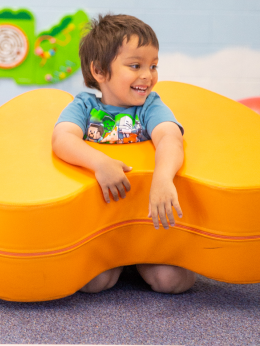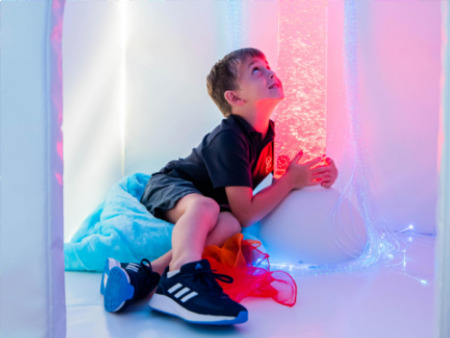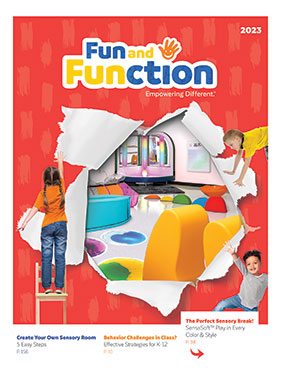Change, no matter when it happens, can be hard. As parents we often wonder what we can do to make these transitions easier for our kids. When it comes to starting kindergarten, there are many new things that children experience. For many this may be their first time being cared for by someone other than a relative! Even though we can’t go to kindergarten with our kids, there are steps that we can take to prepare them for a smooth transition.
1. Implement the new routine early
Kids might need to wake up and go to sleep earlier once school starts. Maybe they need to get accustomed to getting dressed to start the day or practice making it to the bus on time. Whatever changes are coming up for your child, start implementing them now. This gives them a chance to adapt more slowly, instead of everything changing suddenly on the first day of school.
2. Use social stories and/or role play
Spend time talking with your child about what they can expect in kindergarten. Reading books or watching videos about other kids who have gone to kindergarten helps your child form a better understanding of what their own experience might be and ways to react in different situations.
You can even turn it into a role playing game! Come up with a few scenarios so that your child can practice interacting with teachers and other students. Talk about things they can do or say, how to ask for help when needed and how their behavior impacts others. Both of these activities are great for social-emotional development.
3. Pack a sensory toolkit
New routines, people and environments may lead to sensory overload for kids. Identify what sensory tools are most effective for your child’s specific needs. Do they feel overwhelmed when there is too much noise? Pack a pair of noise reduction headphones. Does fidgeting help them focus? Find their favorite fidgets. Do you often give your child a tight hug to calm them? Send along a compression vest or a weighted lap pad for them to use.
Involve your kids in creating a unique sensory toolkit that they can take with them to school. Having the right tools on hand and knowing how/when to use them is a huge step towards self-regulation.
4. Visit the school
If your school allows visitors, take your kids to see where they will be going. Check out the classroom and facilities. You can even try planning a visit based on your child’s school schedule. Walk through as much of their day with them as possible, so that it feels more familiar on the first day.
5. Advocate with the teachers
As a parent, you are your child’s biggest advocate. Meet your kids’ teachers in advance to discuss their needs. Make sure that the teacher is familiar with sensory processing disorders and knows how to engage and relate to your child. You can bring along the sensory tools that your child uses throughout the day to review with the teacher. This way, you can ensure that the teacher will develop strategies to recognize when your child needs help, even if they don’t know how to articulate their feelings or needs on their own.
Similarly, you can connect with the school administrators to go over what strategies and services they have in place for students’ sensory needs. Discuss access to a sensory room or any classroom.
Starting kindergarten is a big step for us and our kids. By preparing in advance and involving our kids in the process, we can reduce anxiety and help our kids feel empowered for their first day of school.
What strategies do you use to ease this transition for your kids? What about for yourself, as a parent?





















Comments